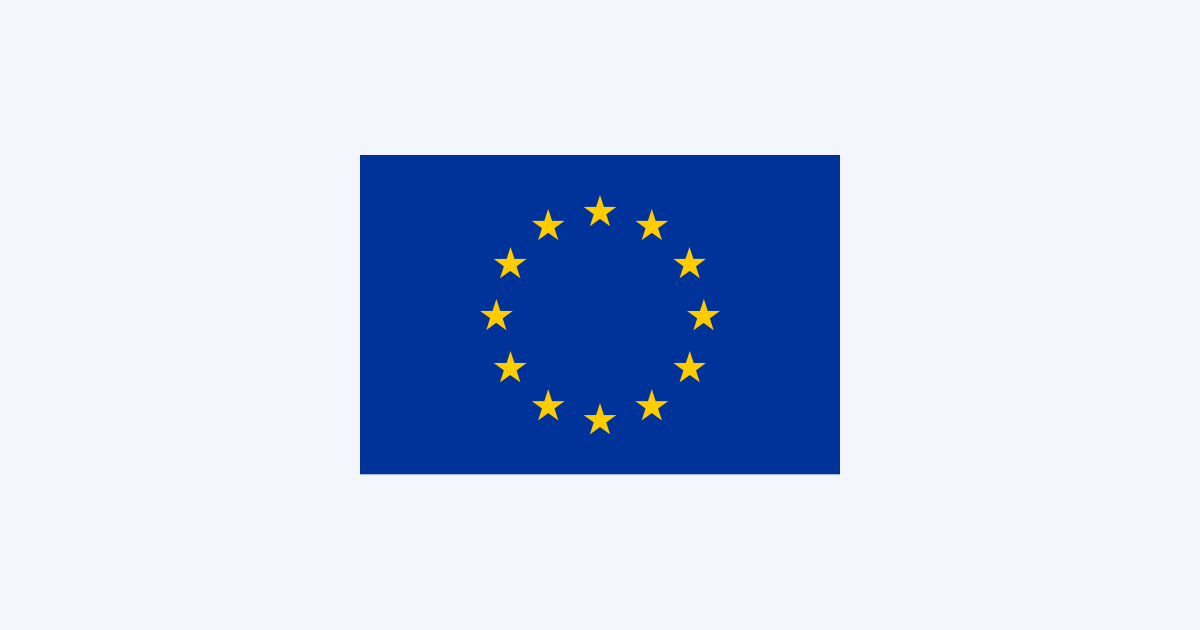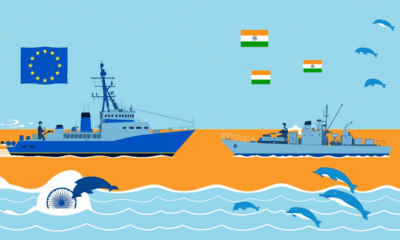Politics
Support from the EU Solidarity Fund helps Slovenia and Greece recover from climate-related disasters

The Commission paid €328 million in EUSF support to Slovenia to help the country recover from the floods that occurred in August and September of 2023. An additional €76 million was transferred to Greece to ease the financial burden of reconstruction efforts after the damage caused by cyclone ‘Daniel’ in September 2023.
Today’s payments come on top of two EUSF advance payments that were already paid to Slovenia and Greece to help kick-start recovery operations: a €100 million advance payment was paid to Slovenia while a €25 million advance payment was paid to Greece.
Therefore, the total amount of EUSF aid granted to Slovenia and Greece collectively amounts to around €529 million and is a tangible expression of the EU’s solidarity with Member States faced with unprecedented climate-related disasters.
The mobilisation of EUSF is based on applications submitted by eligible countries. The emergency and recovery operations may be financed by the EUSF retroactively from day one of the disaster.
EU standing in solidarity with Slovenia and Greece as they recover and rebuild.
In August 2023, Slovenia experienced severe flooding caused by intense rainfall, which affected almost two-thirds of the country. The Sava, Drava, and Mura rivers burst their banks, with key infrastructure including roads and energy supplies damaged, as well as hundreds of private homes and public buildings. The flooding triggered landslides and resulted in significant economic losses.
In September 2023, Greece was struck by the devastating cyclone ‘Daniel’, which ravaged large parts of Greece, mainly in the regions of Thessaly and Central Greece. The cyclone was the deadliest Mediterranean tropical-like cyclone in recorded history, resulting in the widespread destruction of homes.
The EUSF support made available today will help Slovenia and Greece restore key infrastructure, in the fields of transport, water and wastewater, and will help fund temporary accommodation and rescue services.
Background
The EU Solidarity Fund (EUSF) is the EU’s main instrument for post-disaster recovery and is a tangible expression of EU solidarity. It supports Member States and accession countries hit by climate-related disasters and, since 2020, major health emergencies.
Since 2002, the EUSF has mobilised over €8.6 billion for interventions in 130 disaster events (110 natural disasters and 20 health emergencies) in 24 Member States (plus the United Kingdom) and four accession countries (Albania, Montenegro, Serbia, and Türkiye).
The Commission’s RESTORE proposal which proposes amendments to several funding regulations is another expression of the EU standing in solidarity with countries faced with climate-related disasters. The proposal is currently with the co-legislators for adoption.
Source link
Politics
EU changes protection status of wolves in Europe

DISCLAIMER OPINIONS: The opinions of the authors or reproduced in the articles are the ones of those stating them and it is their own responsibility. Should you find any incorrections you can always contact the newsdesk to seek a correction or right of replay.
DISCLAIMER TRANSLATIONS: All articles in this site are published in English. The translated versions are done through an automated process known as neural translations. If in doubt, always refer to the original article. Thank you for understanding.
DISCLAIMER PHOTOS: We mostly used photos images that are readily available online, from free sources, or from the people promoting the news. If by any chance it happens that we have used one of your copyrighted photos, please do not hesitate to contact us and we will take it down without question. We do not make profits as this is a not for profit project to give voice to the voiceless while giving them a platform to be informed also of general news, and it is completely free.
Politics
Commission adopts Ocean Pact to protect marine life and strengthen blue economy



DISCLAIMER: Information and opinions reproduced in the articles are the ones of those stating them and it is their own responsibility. Publication in The European Times does not automatically means endorsement of the view, but the right to express it.
DISCLAIMER TRANSLATIONS: All articles in this site are published in English. The translated versions are done through an automated process known as neural translations. If in doubt, always refer to the original article. Thank you for understanding.

– Advertisement –
– Advertisement –
The ocean shapes our economies, our food systems, even the air we breathe. To better protect our ocean, the Commission has adopted a European Ocean Pact, which will help to promote a thriving blue economy and support the well-being of people living in coastal areas.
This Ocean Pact brings together EU ocean policies under one single and coordinated framework. It will do so through a collaborative approach between EU countries, regions, and stakeholders, including fishers, innovators, investors, scientists, and civil society. Six priority areas for action will define this work, namely
- protecting and restoring ocean health by supporting EU countries in their efforts to restore degraded coastal marine habitats
- boosting the competitiveness of the EU sustainable blue economy including by strengthening the EU’s maritime industry and by introducing a Blue Generational Renewal Strategy, to foster access to young professionals in marine research, ocean tech, and sustainable fisheries
- supporting coastal and island communities, and outermost regions by presenting new or updated strategies for these regions and communities
- enhancing maritime security and defence by strengthening EU coast guard cooperation and maritime border security
- advancing ocean research, knowledge, skills and innovation by proposing an ambitious EU Ocean Observation Initiative
- strengthening EU ocean diplomacy and international ocean governance by stepping up its fight against illegal, unreported and unregulated fishing
The European Ocean Pact will be complemented by an ocean act by 2027, which will help to ensure the implementation of the priorities of the pact. An EU Ocean Pact dashboard will be used to track progress.
For more information
Press release: Commission adopts European Ocean Pact for a healthy ocean, a competitive blue economy and thriving coastal communities
More information about the European Ocean Pact
Source link
More from the author
– EXCLUSIVE CONTENT –
Politics
The European Union and the Republic of Moldova confirm their strong partnership at the 9th EU-Moldova Association Council meeting


© FRVS+MPCP 2022. The European Times® News is registered as an EU Trademark. All rights reserved. The European Times® and the logo of The European Times® are EU trademarks registered by FRVS+MPCP.
Members/Partners of

About Us
Popular Category
DISCLAIMER OPINIONS: The opinions of the authors or reproduced in the articles are the ones of those stating them and it is their own responsibility. Should you find any incorrections you can always contact the newsdesk to seek a correction or right of replay.
DISCLAIMER TRANSLATIONS: All articles in this site are published in English. The translated versions are done through an automated process known as neural translations. If in doubt, always refer to the original article. Thank you for understanding.
DISCLAIMER PHOTOS: We mostly used photos images that are readily available online, from free sources, or from the people promoting the news. If by any chance it happens that we have used one of your copyrighted photos, please do not hesitate to contact us and we will take it down without question. We do not make profits as this is a not for profit project to give voice to the voiceless while giving them a platform to be informed also of general news, and it is completely free.
Editor Picks
-
EU & the World4 days ago
Aurora Borealis Forecast: Where & When to See the Northern Lights Tonight
-

 Sports6 days ago
Sports6 days agoChampions League Final 2024-2025: PSG-Inter, official lineups
-

 Sports7 days ago
Sports7 days agoPSG-Inter, Nicolò Barella jokes about Gianluigi Donnarumma
-

 EU & the World5 days ago
EU & the World5 days agoRihanna’s Parents: About Her Late Dad Ronald Fenty & Mom Monica Braithwaite
-

 Politics6 days ago
Politics6 days agoEU and India Forge Deeper Maritime Ties with Historic Joint Naval Exercise in the Indian Ocean
-

 Sports7 days ago
Sports7 days agoPSG-Inter, Lautaro Martinez unveils recipe for finals
-

 Sports5 days ago
Sports5 days agoOfficial: Damien Comolli new general manager of Juventus.
-
Travel7 days ago
France saw record night train passengers in 2024, but can it keep up with booming demand?








